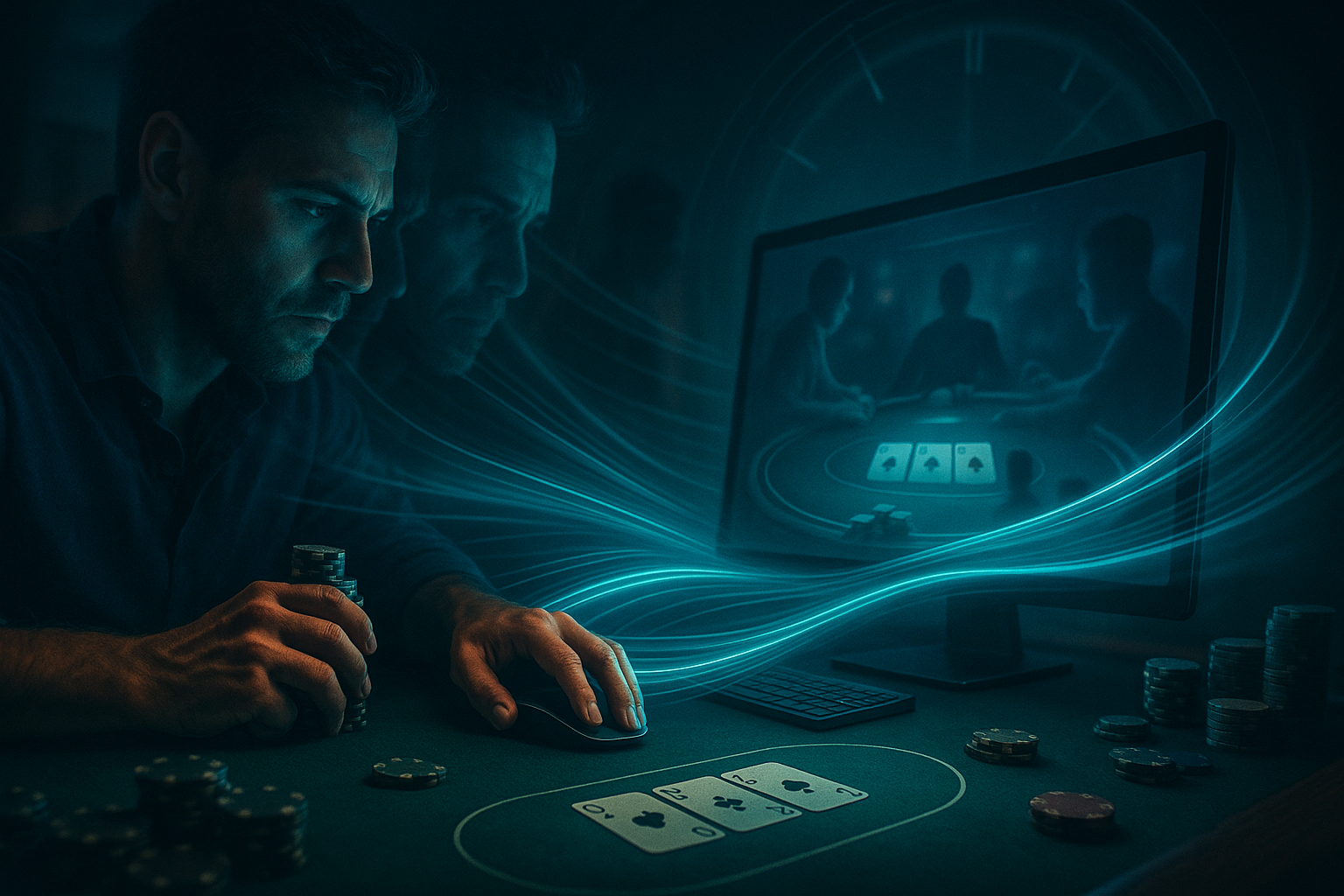The Biggest Difference 5G Brings To Poker Players
In a poker game, we don’t really care much about the immense downloading or streaming speed 5G has to offer; what really matters is latency in game loading, or how long it takes for your action to hit the table.
4G: 50–100 ms delay
5G: 8– 12 ms delay
That gap is massive. With 5G, cards hit instantly, chips move when you move them, and live dealers actually react in real time. The game finally feels natural, like when sitting at a real table.
Another Set Of Improvements Players Will Notice Immediately
Live dealer rooms won’t feel like bad Zoom calls anymore. The action and the conversation both flow.
Big tournaments don’t choke when hundreds of players act at once. 5G handles traffic spikes without freezing up.
Mobile poker goes from “backup option” to a real way to play. No lag, no dropped connections, and no need to run to the PC for a bit better connection.
Poker Available on Sweepstakes Casinos: The Legal Alternative
This is where things get interesting for US players stuck in legal limbo.
Traditional online poker remains banned in most states, but sweepstakes casinos found a clever workaround – and they're getting huge benefits from 5G improvements.
Major Sweepstakes Poker Platforms:
- Global Poker - Biggest poker-focused sweepstakes site by far
- Clubs Poker - Modern setup with bad beat jackpots and a smooth interface
- Stake.us Poker - Solid tournament schedule and ring games
- PokerStars Casino (social version) - Limited but recognizable brand
How Sweepstakes Poker Actually Works:
Two-Currency System:
- Gold Coins - Play money for practice and fun
- Sweeps Coins - The real deal, redeemable for cash prizes
Games You Can Play:
- Texas Hold'em cash games and tournaments
- Omaha variants (when you want more action)
- Sit-and-go tournaments for quick sessions
- Multi-table tournaments with legitimate prize pools
The 5G advantage here is massive. These platforms used to suffer from the same lag issues that plagued regular poker sites. Now they're delivering gameplay that feels as responsive as live poker rooms.
Players can switch between gold coins and sweeps coins instantly, jump into real-time tournaments without delays, and cash out winnings without the frustrating lag that used to make mobile sweepstakes gaming feel broken.
Psychological Importance of No Lag: Timing Is Crucial for the Mind Games
Whenever we think of poker, we don’t think just about statistics, hand analysis, math behind the odds of winning, etc, but also about the mind games among the players. To become a really great player, one must master a psychological layer of the game as well. And timing plays a huge role in that realm. When there’s lag, an action might appear to be hesitation, but in reality, it’s just the network catching up. That breaks the flow and chips away at the natural feel of the game. With 5G, those micro-delays disappear. Decisions register instantly, the rhythm of play feels authentic, and the psychological battle, the same one that makes live poker so compelling, finally carries over online.
Bluffing, in particular, thrives on this rhythm. A perfectly timed pause, a snap-raise, or a deliberate check can all tell a story. But if those signals get blurred by latency, the bluff loses its edge and the opponent’s read becomes distorted. With ultra-low lag, players regain the ability to weaponize timing online just as they do at the live tables, making bluffs sharper, mind games deeper, and the competition far more real.

The 5G Coverage Reality: Regional Differences Matter
Reality check – 5G isn't everywhere yet.
Major US cities have decent coverage. Most of Europe is there. But Latin America, chunks of Asia, and rural areas everywhere are still waiting.
Poker operators adapted by splitting their approach. In 5G markets, they're rolling out the fancy stuff:
- Multi-table tournaments with HD video streams
- Real-time statistics that actually update in real-time
- Social features that don't make you want to throw your phone
In 4G areas, they stick to lighter game variants that won't choke older networks.
This creates a weird dynamic. Players in different regions are literally getting different online poker experiences based on their cell towers.
Advanced Features That Weren't Possible Before 5G
5G unlocks features that were fantasy on 4G:
Multi-table tournaments with live elements actually function. Watch live dealers manage final tables while grinding your own tables simultaneously. Zero lag, zero performance issues.
Hand history analysis updates instantly. Advanced stats and opponent tracking happen in real-time without affecting gameplay performance. The kind of analytical tools in modern poker that used to slow down games now enhance them seamlessly.
Social features make sense now. Voice chat between players, instant messaging, and even video chat become practical when network delays disappear.
Graphics and animations can be console-quality without network bottlenecks killing the experience. Some new poker rooms look incredible – like something out of a casino movie.
What's Coming Next: The Future of 5G Poker Technology
5G is just the foundation. Operators are testing technologies that need ultra-low latency:
- Virtual reality poker rooms that actually put you at realistic tables with other players (we tried an early version – surprisingly immersive)
- Augmented reality overlays that add information without disrupting gameplay
- AI coaching providing real-time strategy suggestions (controversial territory, but it's coming)
- Blockchain integration for instant, verified transactions
None of this works without 5G's responsiveness.
Conclusion
5G networks eliminate the gap between online and live poker. Players get instant responsiveness, smooth streams, and natural game flow matching their expectations from physical poker rooms.
The industry is responding with serious investment in next-generation platforms built specifically for 5G capabilities. As coverage expands globally, more players will experience poker the way it should be – fast, smooth, and engaging.
Still stuck on 4G? Won't be long. Network operators prioritize urban areas and entertainment hubs where poker players concentrate. Most serious poker markets should have solid 5G coverage within two years.
The future of online poker isn't just digital – it's indistinguishable from sitting at a real table.




